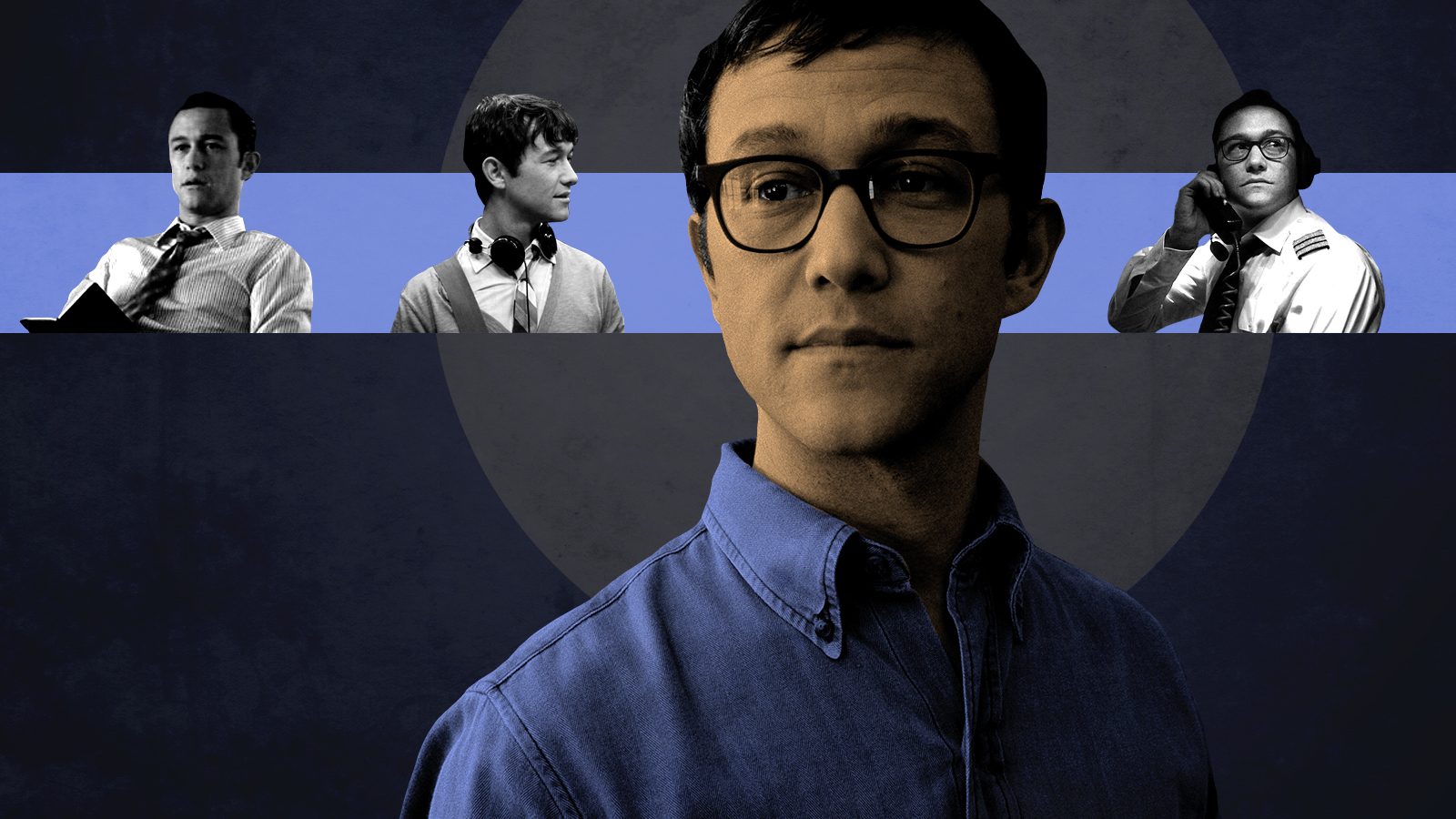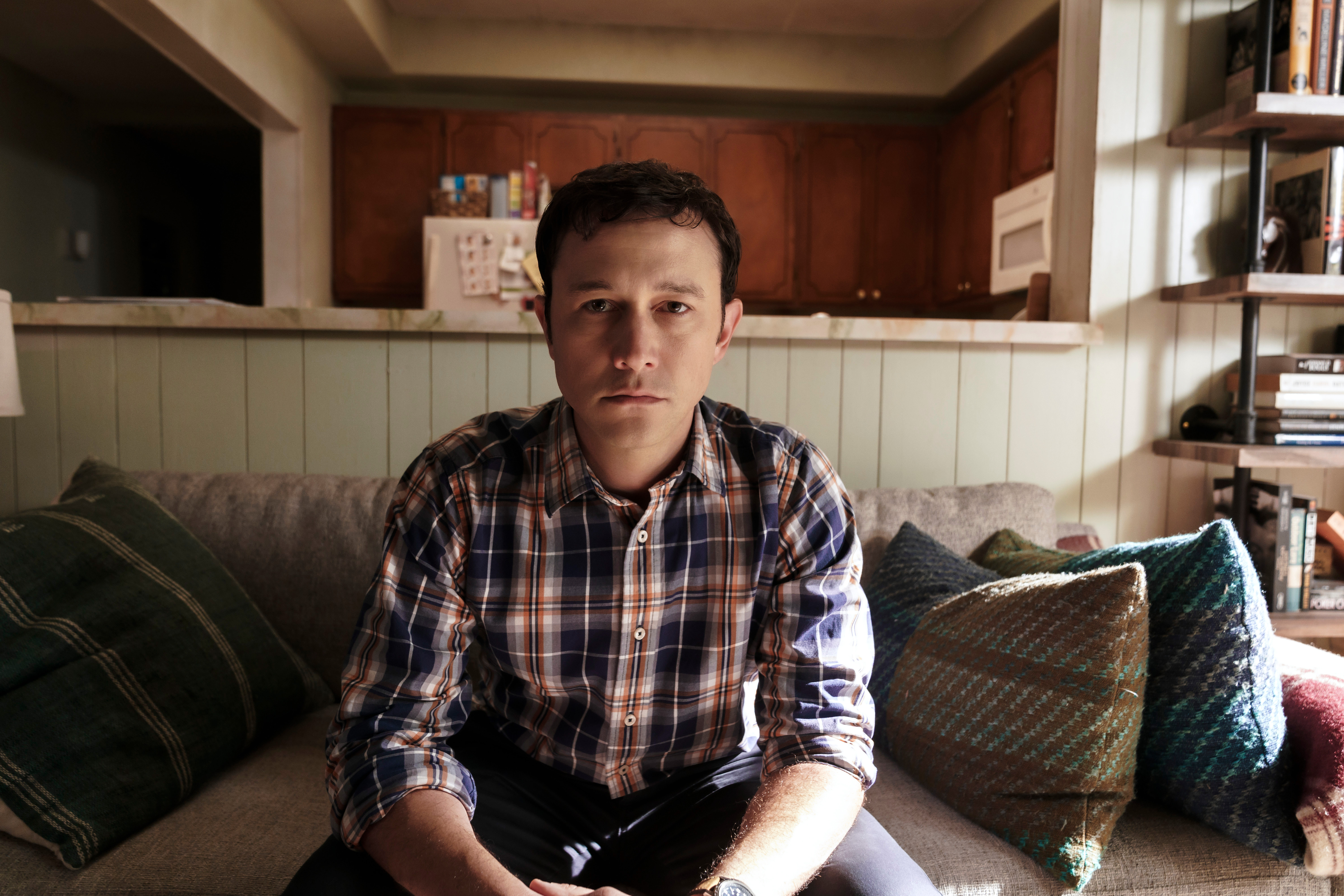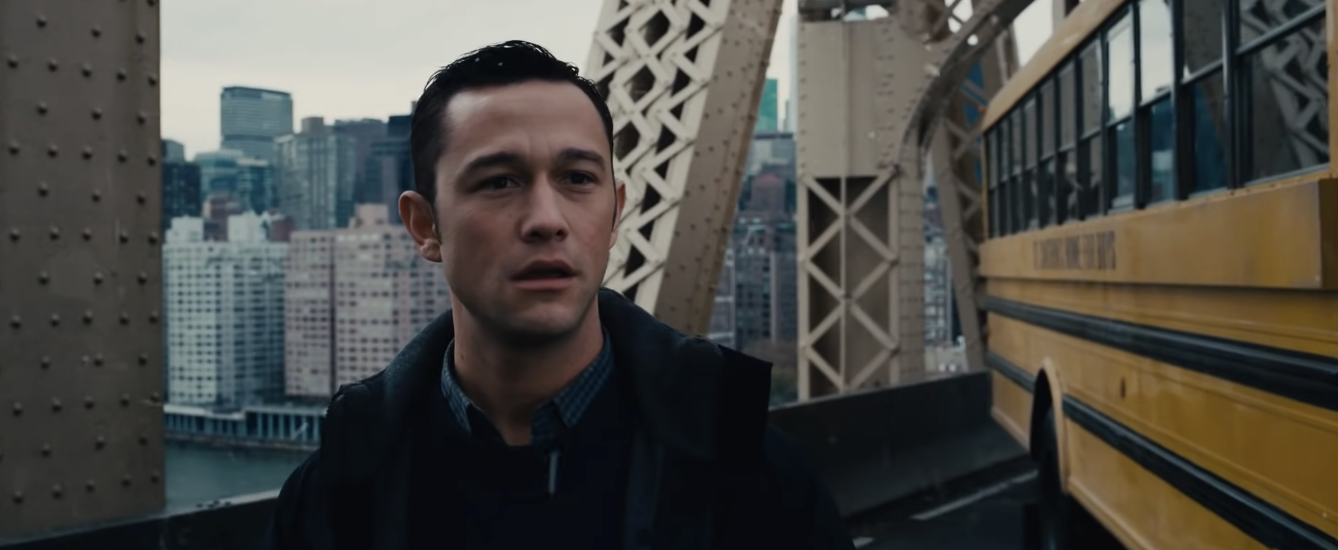Where has Joseph Gordon-Levitt been hiding?
The actor has emerged from a two-year hiatus with a fresh ambition for his career


A free daily email with the biggest news stories of the day – and the best features from TheWeek.com
You are now subscribed
Your newsletter sign-up was successful
If you're looking for Joseph Gordon-Levitt these days, you should start your search in Wellington.
Initially, New Zealand's North Island was only supposed to be a plan B: Production on Gordon-Levitt's new show, Mr. Corman, halted three weeks into shooting in L.A. because of the pandemic, so the producers at A24 suggested moving the whole thing last October. "I'm still here," Gordon-Levitt recently admitted on the WTF With Marc Maron podcast, though the show is now finished, edited, and set to be released on Apple TV+ in weekly installments starting Friday.
No wonder, then, that Maron's follow-up question was "are you ever coming back?" Because Gordon-Levitt has a funny way of vanishing. During what seemed to be the height of his career in 2016 — the end of a decade-long streak of putting out at least one critically-acclaimed movie every year — the actor abruptly took a two-year hiatus, his longest time off from acting since he was six years old.
The Week
Escape your echo chamber. Get the facts behind the news, plus analysis from multiple perspectives.

Sign up for The Week's Free Newsletters
From our morning news briefing to a weekly Good News Newsletter, get the best of The Week delivered directly to your inbox.
From our morning news briefing to a weekly Good News Newsletter, get the best of The Week delivered directly to your inbox.
Gordon-Levitt disappears in other ways too, though. Despite having worked with a murderers' row of contemporary directors — Christopher Nolan, Steven Spielberg, Robert Redford, Spike Lee, Oliver Stone, Robert Zemeckis, Rian Johnson, Aaron Sorkin — he seems perennially overlooked for lead parts, and awards juries don't ever seem to take notice that he's in the cast. With nearly three decades in the film industry, he's never been nominated for an Academy Award, and his flashiest honor to date might still be the Golden Globe nod he got for his performance in 2009's (500) Days of Summer (which he ultimately lost to Robert Downey Jr.'s Sherlock Holmes).
But Gordon-Levitt's vanishing acts are exactly what makes him worth seeking out. Historically, he tends to play everyman-type characters, the ones who are stand-ins for the audience: relatable, nonthreatening, handsome but not unrealistically so. They're not the kinds of roles that make celebrities — Gordon-Levitt disdains to be one, anyway — but serve as the narrative salt that brings the flavors of others out. An unkind or unobservant critic might call them unchallenging parts, but they're actually the opposite: the hardest thing an actor can do is disappear before your eyes.
And Gordon-Levitt's new chapter of work, post-hiatus, is raising his own bar.

For someone who's spent his entire life on sets, Gordon-Levitt seems healthily unbothered by the external pressures of Hollywood. Before his break from new releases between Snowden in 2016 and 7500 in 2020, he'd actually stepped away from the cameras once before, to attend Columbia University in 2000 and study History, Literature, and French Poetry — a decision that gave him a definitive separation from his child (3rd Rock From the Sun; A River Runs Through It; Angels in the Outfield) and teenage (10 Things I Hate About You) acting eras. When he returned to the industry, he made "the conscious decision … that I wanted to be in good movies," he told Canada's MoviesOnline.
A free daily email with the biggest news stories of the day – and the best features from TheWeek.com
The interim found him in every genre from rom-com (500 Days of Summer) to noir (Brick) to heist thriller (The Lookout) to historical drama (Lincoln) to biopic (Snowden), to comic book movie (The Dark Knight Rises), to sci-fi mind-bender (take your pick). Gordon-Levitt, though recognizably boyish when not wearing prosthetics to make him look like a young Bruce Willis, blended into each role seamlessly, a talent that would earn him the praise of being a "chameleon," if, perhaps, he were ironically a little more noticeable. Instead, Gordon-Levitt showed up time and time again and did his part, catching the attention of an increasingly impressive array of directors as well as colleagues; he was reportedly cast in Lincoln on the recommendation of Daniel Day-Lewis. And while it wasn't a flawless run (there was also Elektra Luxx), Gordon-Levitt mostly managed to hold up his promise to himself: he starred in at least one critically "good" movie every year since 2001, with the exception of 2003 and 2006 when he wasn't in any films at all.

Then came 2016, when Gordon-Levitt's final movie for three years, Snowden, was released. His reason for stepping back, he subsequently explained to The Hollywood Reporter, was starting a family with his wife, robotics scientist Tasha McCauley: the two welcomed sons in 2015 and 2017, although they're so intensely private that even the boys' names aren't known to the press. Once more, though, when Gordon-Levitt finally decided to return to filmmaking, he had a resolve: "[H]aving taken some time off, the perspective that I've returned with was just really wanting to focus on the art and the craft that I love so much," he said in June of last year. "There were, of course, voices in my head expressing concern about momentum, career building, and things of that nature. But I knew that if I wanted to be happy, I had to choose my first project back as what would challenge me as an actor and really intrigue and inspire me."
Specifically, he was talking about 7500, released digitally on Amazon Prime, to little fanfare, last summer. Though the film was met with mixed reviews ("This ... isn't going to make anyone's Top Ten 'Best Hijack' flicks"), it might be Gordon-Levitt's most impressive role of his career. With the exception of the opening credits and the final shot, the entire movie takes place in the cockpit of an airplane, where Gordon-Levitt is in every scene as the co-pilot during a hijacking; his ability to channel both competence and relatable innocence and bewilderment is what makes the part so affecting. It feels chillingly, horribly real and intense to experience. Notably, it's also the first time Gordon-Levitt has played a father, a personal life change that clearly informed the role.
"The director Patrick Vollrath's shooting style is different than anything I'd done before, highly geared towards the actors being able to fully immerse themselves in the story," Gordon-Levitt later wrote in a caption on Instagram promoting the film. "We wouldn't stick to script, wouldn't stick to marks, would just leave the camera rolling and stay in character for these long stretches of time. It was extremely challenging, but deeply rewarding." Rightfully, he wrote in conclusion: "I'm really proud of it."

Mr. Corman, then, is a fascinating next chapter for Gordon-Levitt. Though he's most recognizable as an actor, Gordon-Levitt casts a wide net with his artistic interests (something emphasized by his founding of the artist-collaboration platform HitRecord in 2004, which he still actively runs and promotes). Mr. Corman is a sort of culmination of those personalities: Gordon-Levitt not only stars as the main character, but he's also the creator, writer, executive producer, often director, sometimes musician. The show isn't autobiographical by any means, but it is clearly an exploration of a part of Gordon-Levitt in the same way that 7500 pulls rawly from something emotionally personal. "It's probably the most me-ish thing I've ever made," he told The New York Times, in case the character's name "Josh Corman" sounding like "Joseph Gordon" didn't immediately tip us off.
The series is a kaleidoscopic pull of interests, almost with the feeling of being a blank-check project in the scope of the ambition. The plot is difficult to explain — even Gordon-Levitt was unsuccessful in giving a neat elevator pitch to Maron's listeners — but it follows the life of a former musician turned fifth-grade teacher who lives in the San Fernando Valley with his roommate (Arturo Castro), having recently split from his fiancee and former musical collaborator (Juno Temple). Josh, though, struggles with debilitating anxiety and self-sabotaging habits, as well as a complicated relationship with his mother (a fabulous Debra Winger). Taking a page from the set of 7500, it also uses long takes, becoming an actor's showcase by virtue of allowing for riffs, improvisation, and immersion.
But while a description of the show, at least superficially, might provoke a why-do-I-care-about-another-sad-white-guy response, it's the execution that makes it unique. Gordon-Levitt, for example, throws an entire musical number in one episode; yes, he sings and dances too. Another episode imagines the parallel universes that Josh Corman could have existed in instead. There's even a pandemic special near the end of the series, too, which Gordon-Levitt says was hastily rewritten to adapt to the current global situation since he wanted, above all, for Mr. Corman to be rooted firmly in the real.

The real — Gordon-Levitt is searching for it himself. A discerning nose for a worthwhile script kept him rotating through roles that gave him a reputation of being an actor's actor in the mid- to late-2000s, but these days he's clearly on the hunt for something more internally fulfilling. Authentic emotion? The boundaries of his own creative output? A way to pull away from himself as far as he can, only to find himself back where he started?
Though he's not the type to be bothered by trophies and other material signs of Hollywood's approval, this period might push Gordon-Levitt even further out of people's minds. Not because what he's doing isn't great acting — it is — but because he'll only continue to disappear from here on out, immersing himself deeper into characters who we'll recognize foremost in ourselves, before we finally see the actor behind them.
Anyway, he won't be going away again anytime soon. Gordon-Levitt appears to be back to his prolific self, having starred in the Oscar-nominated ensemble film Trial of the Chicago 7 in 2020, as well as yet another sci-fi mind-bender, Netflix's Project Power, in which a new street drug gives users superpowers for five minutes.
Asked what superpower he'd want to have in promotion for the latter film, Gordon-Levitt told The Hollywood Reporter, "I like the idea of extreme empathy, where you could actually see and hear and feel and smell and taste what someone else is sensing." Although I'd argue that based on the evidence presented by his acting career, where he wholly inhabits other people, he already has it.
But that's Gordon-Levitt for you: despite all outward appearances, he still hasn't found what he's looking for.
Jeva Lange was the executive editor at TheWeek.com. She formerly served as The Week's deputy editor and culture critic. She is also a contributor to Screen Slate, and her writing has appeared in The New York Daily News, The Awl, Vice, and Gothamist, among other publications. Jeva lives in New York City. Follow her on Twitter.
-
 The Olympic timekeepers keeping the Games on track
The Olympic timekeepers keeping the Games on trackUnder the Radar Swiss watchmaking giant Omega has been at the finish line of every Olympic Games for nearly 100 years
-
 Will increasing tensions with Iran boil over into war?
Will increasing tensions with Iran boil over into war?Today’s Big Question President Donald Trump has recently been threatening the country
-
 Corruption: The spy sheikh and the president
Corruption: The spy sheikh and the presidentFeature Trump is at the center of another scandal
